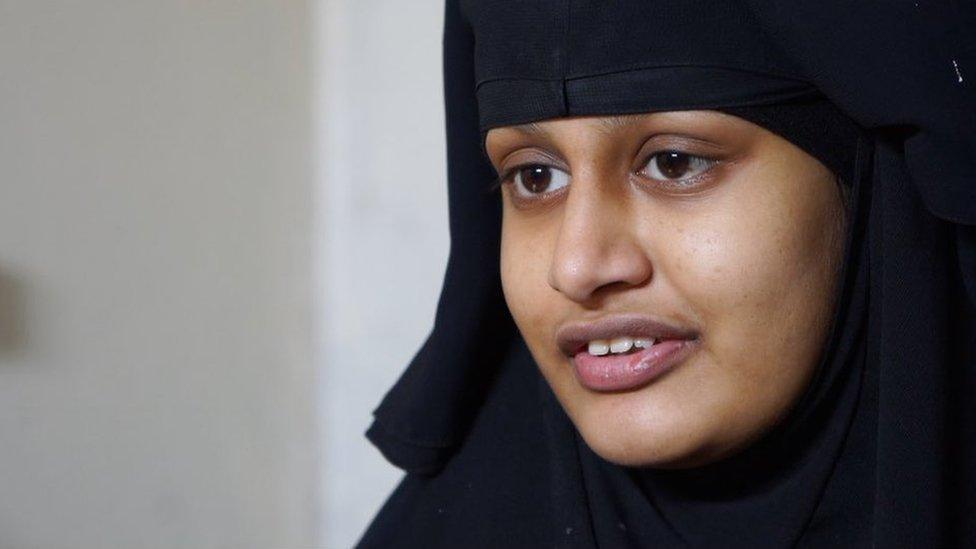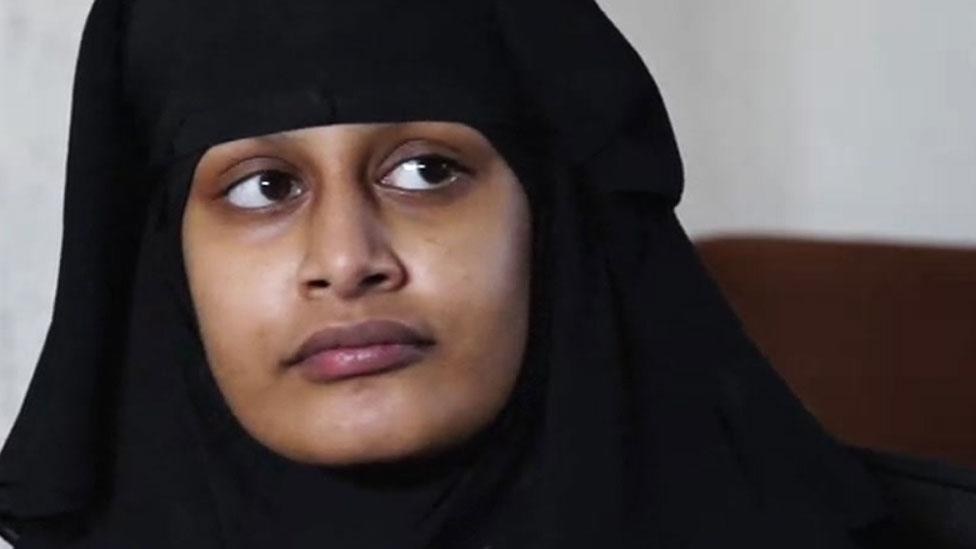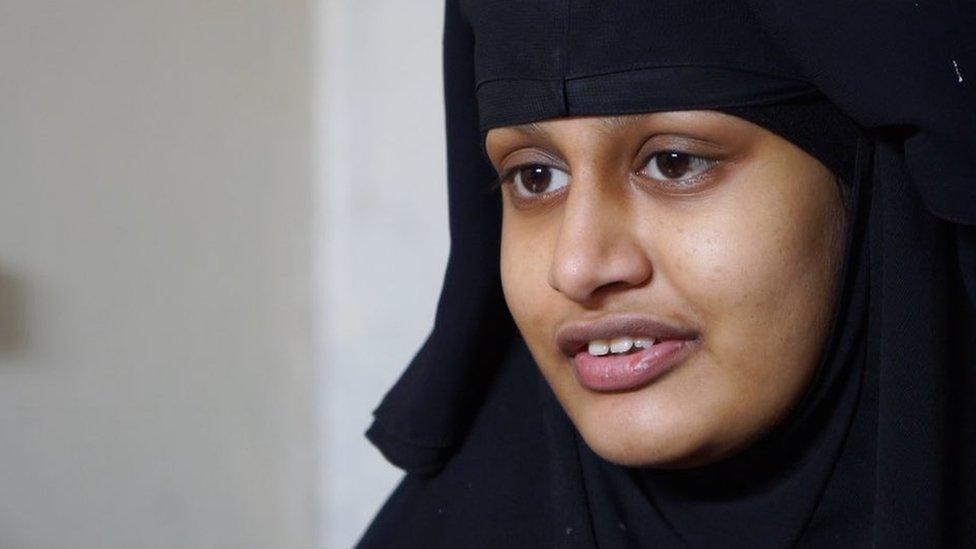Shamima Begum: IS bride set to be granted legal aid
- Published

Ms Begum left Bethnal Green, east London, in 2015 to join the Islamic State group in Syria
Shamima Begum - who joined the Islamic State group aged 15 - is set to be granted legal aid to fight the decision to revoke her UK citizenship.
The 19-year-old, who left east London in 2015, was stripped of her citizenship in February, after she was found in a Syrian refugee camp.
Her family has previously said it planned to challenge the decision.
Foreign Secretary Jeremy Hunt said the idea of the provision of legal aid to Ms Begum made him "very uncomfortable".
Mr Hunt added, however, that the UK was "a country that believes that people with limited means should have access to the resources of the state if they want to challenge the decisions the state has made about them".
Legal aid is financial assistance provided by the taxpayer to those unable to afford legal representation themselves, whether they are accused of a crime or a victim who seeks the help of a lawyer through the court process.
It is means-tested and availability has been cut back significantly in recent years in England and Wales.
Civil servants at the Legal Aid Agency, which is part of the Ministry of Justice, are responsible for making decisions about who receives legal aid.
Earlier, the BBC reported Ms Begum's case had been approved - but sources now say it will be formally signed off in the coming days.
The legal aid that is expected to be granted covers a case before the semi-secret Special Immigration Appeals Commission (Siac), which adjudicates on cases where the home secretary has stripped someone of their nationality on grounds of national security.


Cases before Siac are among the most complicated legal challenges that the government can face.
This is because they typically involve a complex combination of MI5 intelligence reports, which cannot be disclosed to the complainant, and long-standing law on achieving a fair hearing.
It is not yet clear when the expected case will be heard but the Siac process can take years to complete - and granting of legal aid in these circumstances is not unusual.
Over the last decade or so there have been many other people stripped of nationality on the basis they are linked to terrorism who have been legally-aided during the Siac process.

Ms Begum left the UK in February 2015 alongside fellow Bethnal Green Academy pupils 15-year-old Amira Abase and 16-year-old Kadiza Sultana.
Ms Begum was found in a Syrian refugee camp in February 2019 and said she wanted to return home.
Soon afterwards, she gave birth to a boy called Jarrah. He died of pneumonia in March at less than three weeks of age. She had two other children who also died.
In the wake of the boy's death, Home Secretary Sajid Javid was criticised over the decision to strip Ms Begum of her British citizenship.
Three weeks prior to the death, Ms Begum's sister, Renu Begum, had written to Mr Javid asking him to help her bring the baby to the UK.
Jeremy Corbyn: "We should not judge outside of a court"
On Monday, the Daily Mail first reported that legal aid had been granted, external in response to an application made on 19 March.
Mr Javid said the granting of legal aid was a decision for legal aid organisations and it was "not for ministers to comment".
Labour leader Jeremy Corbyn argued Ms Begum had the right to apply for legal aid.
"She is a British citizen," he said. "She's therefore entitled to apply for legal aid if she has a legal problem just like anybody else is."
He added: "The whole point of legal aid is that if you're facing a prosecution then you're entitled to be represented and that's a fundamental rule of law, a fundamental point in any democratic society."
'Not a political decision'
Dal Babu, a former chief superintendent in the Metropolitan Police and a friend of the family, said Ms Begum should have legal aid to make sure the correct process is followed.
He told BBC Radio 4's Today programme: "I think legal aid is a principle of the British legal justice system."
Under the 1981 British Nationality Act, external, a person can be deprived of their citizenship if the home secretary is satisfied it would be "conducive to the public good" and they would not become stateless as a result.
It was thought Ms Begum had Bangladeshi citizenship through her mother - although Bangladesh's ministry of foreign affairs said she had been "erroneously identified" as a Bangladeshi national.
Human rights group Liberty said granting legal aid in this case was "not just appropriate but absolutely necessary to ensure that the government's decisions are properly scrutinised".
- Published22 February 2019

- Published21 February 2019
